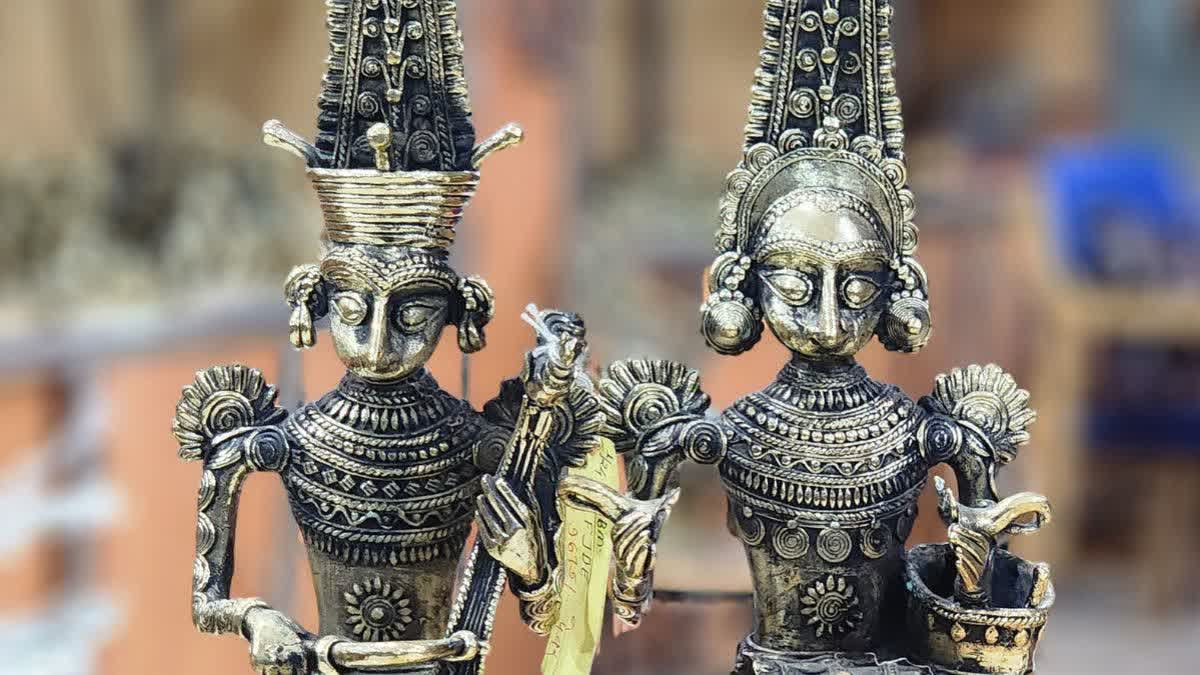Bastar: In Chhattisgarh's Bastar, where traditions run deep, Jhitku and Mitki's real-life love story has remained eternal, despite a tragic ending. Though fate was cruel, their short-lived romantic tale serves as a reminder that some bonds are meant to last forever.
The Love Story Of Jhitku-Mitki
Bastar resident and senior journalist Avinash Prasad recalls the love story of Jhitku-Mitki and the tragedy that unfolded years ago.
In the Pendravan village near Vishampuri road, about 50-60 km from Kondagaon district headquarters, Mitki grew up under the shadow of her seven brothers. Their love for Mitki was such that everyday after waking up in the morning, they would first see her face before heading for any activity. Mitki's world also revolved around her brothers until one day she met Jhitku, a youth from a neighbouring village, at a mela in Pendravan. Both of them fell in love at first sight.
But Jhitku Must Live As 'Ghar Jamai'..
Jhitku and Mitki started meeting often and their love grew stronger by the day. Both promised to each other - We will love and die together. Days later, when Jhitku met Mitki's brothers expressing his desire to marry her, they put forth a condition - he must live as a ghar jamai (resident son-in-law) in their home. Since Jhitku had no family and was willing to do anything to spend his life with Mitki, he immediately agreed to their demand without any hesitation.
The lovebirds tied the knot, and in the same village, Jhitku built a small mud house where he and Mitki started their new life together. Mitki's brothers, however, felt bad that despite living in the same village, their sister stayed in another house.
Meanwhile, the village witnessed a rare famine which dried up its only pond. Clueless about the remedy, the villagers called a tantrik who suggested that only a human sacrifice would bring back water to the pond and ensure it never dries up. The tantrik specifically said that the chosen one should be an 'outsider' of the village. Labelling Jhitku as an outsider, the villagers provoked Mitki's brothers to sacrifice Jhitku, for, they believed this would not only save the village but also earn the brothers fame and recognition in the surrounding villages.
On the fateful night, when there was heavy downpour, villagers along with Mitki's brothers took Jhitku near the pond and killed him. Back home, Mitki kept waiting for him but he never arrived. Next morning, as she started searching for him and reached the pond, Mitki saw her husband's body submerged in the mud. Unable to bear his death, Mitki also ended her life near the same spot.
The story however did not end with their death. Avinash Prasad revealed that over time, people of Bastar started worshipping Mitki as 'Gapa Devi', as she had carried a basket (gapa) with her while searching for Jhitku. On the other hand, Jhitku became popular as Khodiya Raja, as his body was found near a statue of Khodiya Dev.
Whenever people discussed love, Jhitku and Mitki's names reverberated through generations. Today, locals organise fairs and mandis (markets) in their name. Even Jhitku and Mitki's idols have been crafted in bell metal by local artisans, in honour of the love and sacrifice that Pendravan witnessed.
Both married and unmarried couples now seek the blessings of Jhitku-Mitki and pray for love and companionship. Every artisan in Bastar, before beginning any new creation, first sculpts Jhitku and Mitki. Interestingly, the love story has even inspired a Chhattisgarhi film to ensure that this tale of love is preserved forever.



